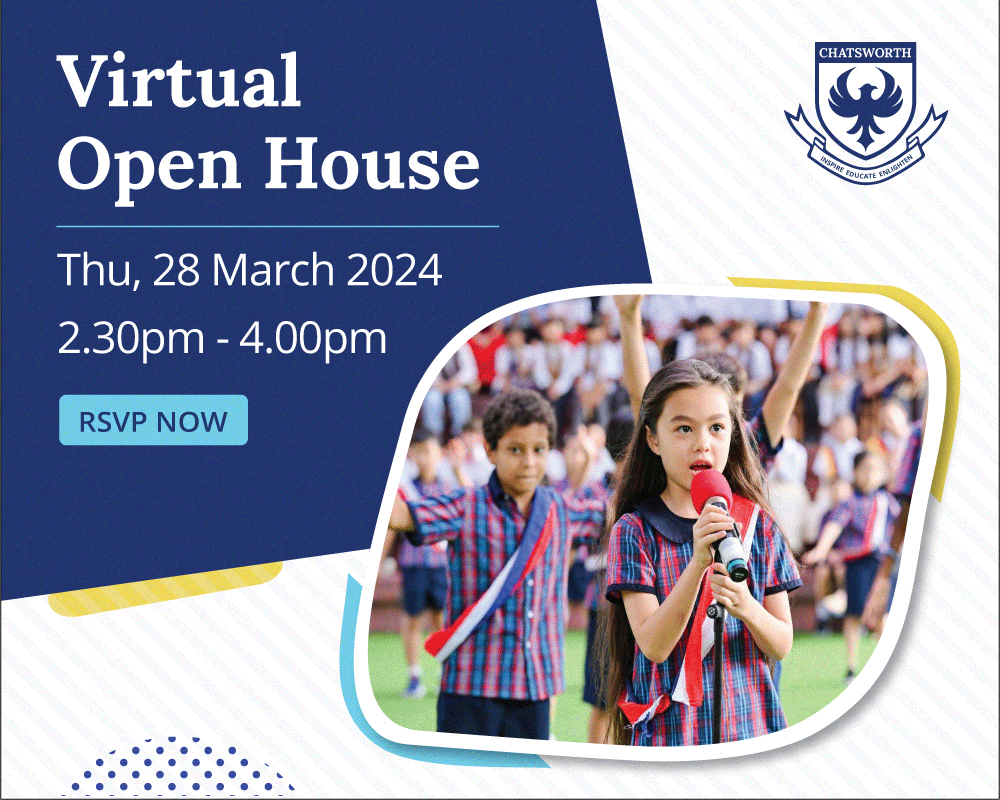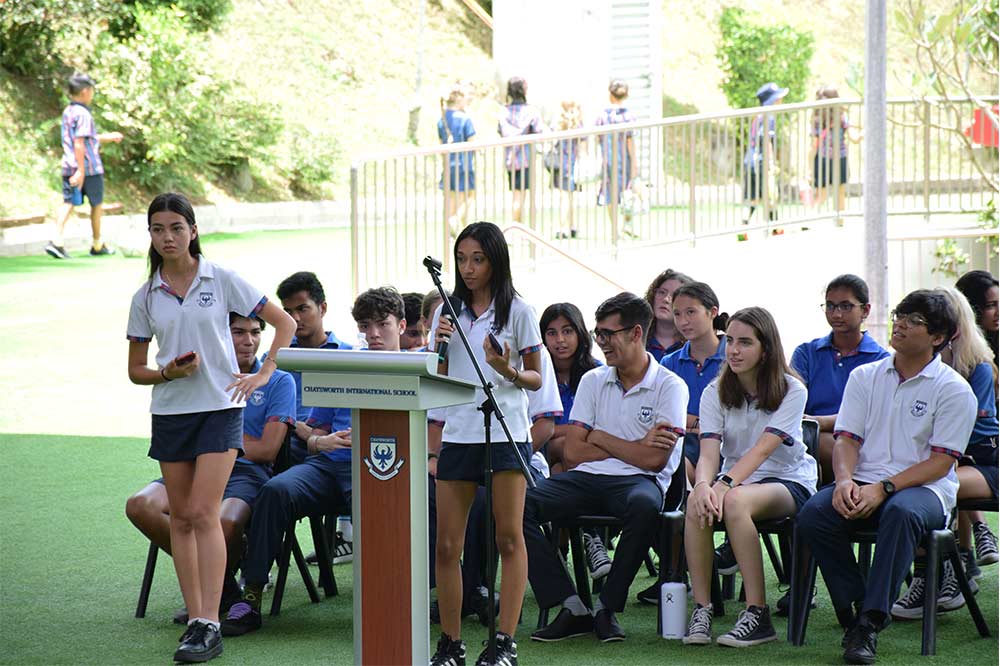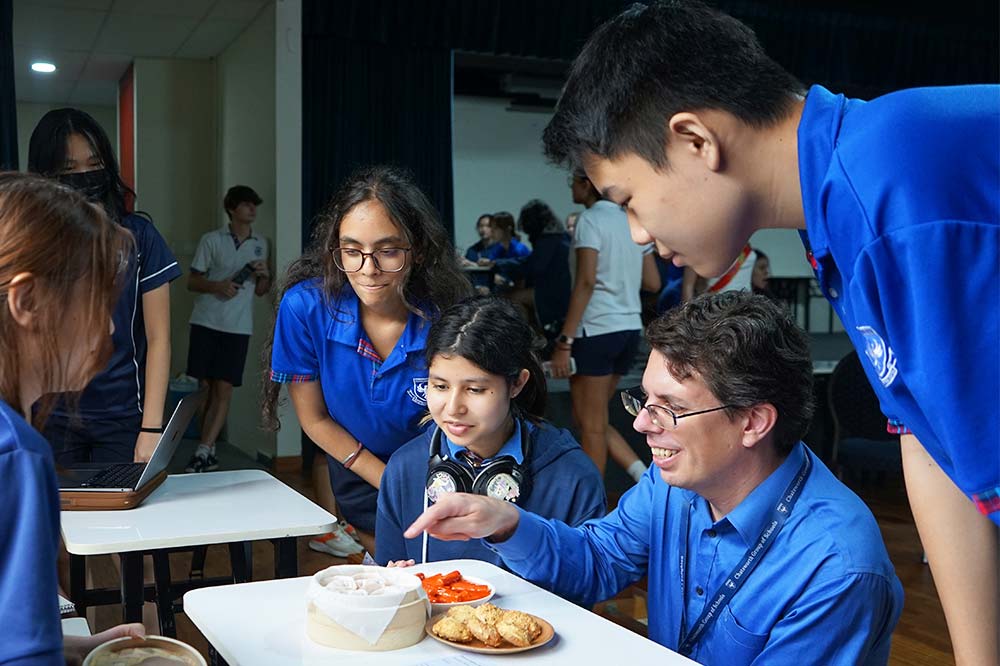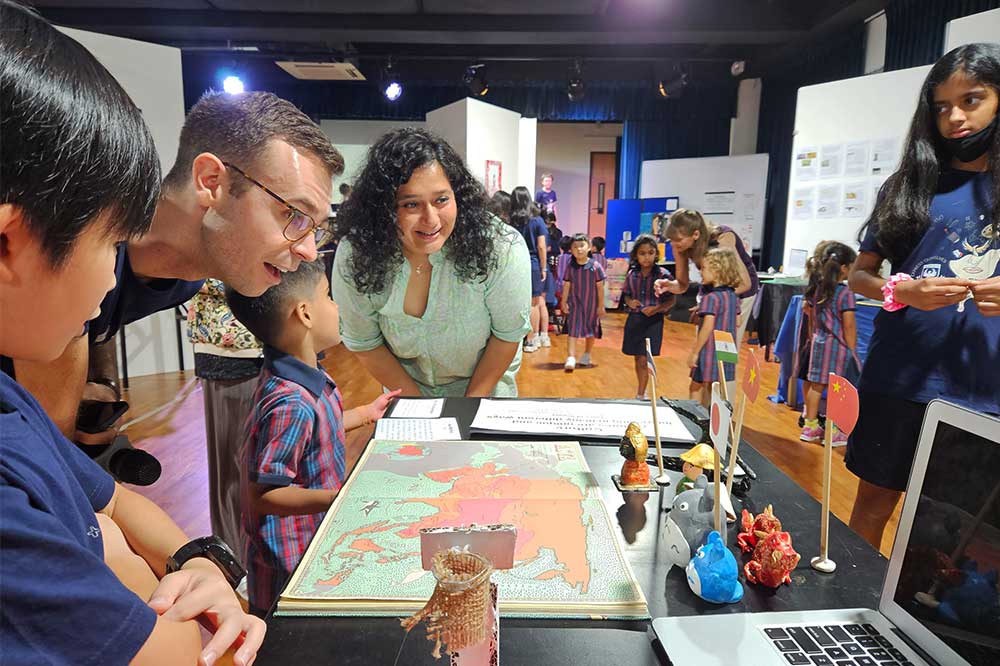Empowering Learners: Co-constructing Classroom Systems for Ownership and Agency
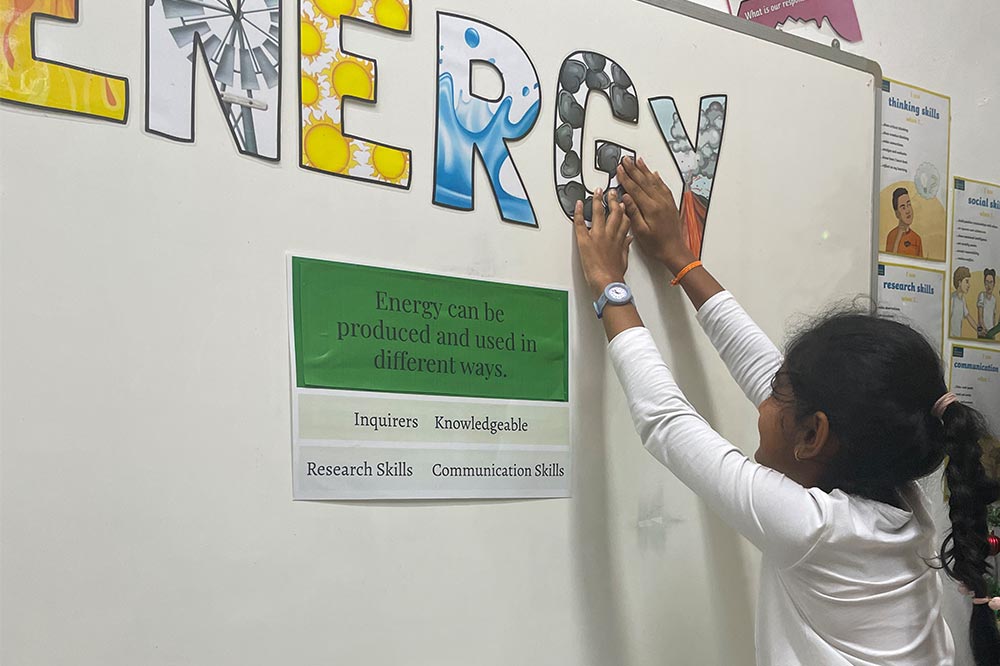
In the dynamic landscape of education, the International Baccalaureate (IB) program stands as a beacon for fostering and empowering children to co-construct systems within the classroom, providing them with a sense of ownership and agency of the world around them. The IB learner profiles and approaches to learning serve as the foundation of this educational approach as students are encouraged to become inquirers, thinkers, and risk-takers while further reinforcing communication and critical thinking skills for an interconnected and student-driven education. John Dewey (1938) once stated that "Education is not preparation for life; education is life itself".
The IB implores students to be principled and caring individuals, aware of their roles in a global context. Yet, to truly instil these values, students must have agency over their environment from an early age. In the words of Paulo Freire (1970), "Education must begin with the solution of the teacher-student contradiction by reconciling the poles of the contradiction so that both are simultaneously teachers and students." Co-constructing systems empowers students to become active agents in their education, breaking down traditional hierarchies and fostering a collaborative spirit. This echoes Chatsworth International School’s commitment to developing well-rounded individuals who are not just recipients of knowledge but internationally-minded and active participants within the world.
Student Agency at Chatsworth International School
At our school, we believe in recognising and nurturing the unique strengths and interests of each student. We understand the importance of instilling a sense of agency in students with the myriad of opportunities for student-led projects and initiatives. Whether it's a science experiment, an informative poster, a lunchtime play group, or a performance for an assembly, students have the opportunity to propose, plan, and execute their own projects with the encouragement of the staff surrounding them. These hands-on experiences not only develop crucial leadership and organisational skills but also cultivate the IB’s Learner profile attributes and Approaches to learning. The sense of agency and ownership from these opportunities allows the collaborative partnership between students and teachers to develop towards creating systems within the classroom.
Exploring How We Organise Ourselves UOI: Organisation is important for maintaining efficient systems
Throughout the unit of inquiry, Year 4 students were given the opportunity to organise the classroom in ways that made sense to them and their learning as a way to promote student agency. The focus was to create systems in the classroom to enhance efficiency and organisation, however the pivotal moment of learning came from the students’ initiative and therefore, instilling ownership and a sense of responsibility.
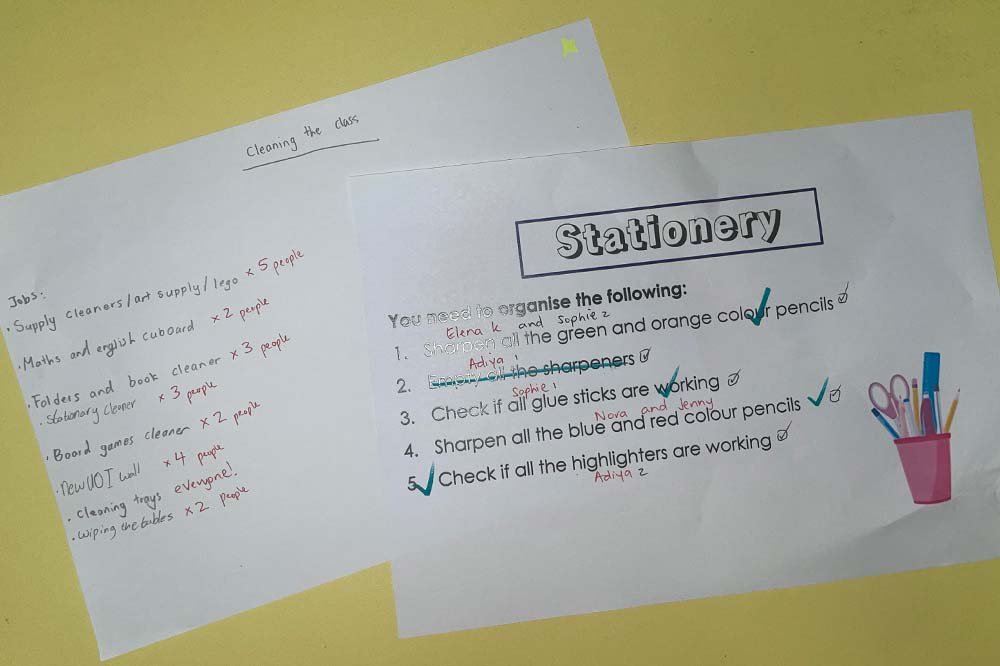
Picture this: a classroom buzzing with anticipation, students eagerly awaiting a provocation that promises to catapult them into a world of critical thinking and collaboration. This was no ordinary day in our classroom – it was an experiment in student agency that left a lasting impact on both the teacher and the learners. The simple idea was designed to spark curiosity and ignite the IB learner profiles however the result was more than we expected. The room became a canvas, waiting to be transformed by the collaborative efforts of students and teachers alike.
The first ripple of excitement came with the realisation that they weren't just learners but active contributors to their learning journey. The learner profiles – inquirers, thinkers, communicators – took centre stage as students dived into the challenge with questions, wonderings, and enthusiasm. This was beyond the teacher being a teacher and the students being students; this was an opportunity to embody the IB philosophy of agency in a tangible way.
As a class we had previously discussed the importance of developing a system to complete a task in an organised and efficient way. Putting the provocation to the test was about to be very tangible. The Approaches to learning became the guide in this collaborative endeavour.
Acquiring and Honing Important Skills
Communication and critical thinking skills were required throughout this provocation to decide on what was going to be changed and how 23 students would go about making these changes. Finally, self-management skills were in full force to ensure they stuck to their role and responsibility within the job they had decided amongst themselves. The classroom was no longer a static space; it became a dynamic arena for the application of ATL skills in real-time.
As a teacher, witnessing this joint effort was nothing short of inspiring. The true magic unfolded as students were in groups and focussing on an area of the classroom. The room was filled with the hum of discussion, leadership, negotiation and - when reached - compromise. A pair of students grouped the coloured pencils together so that it was easier to search for the colours they needed; a group separated the picture book from the novels in the library corner; while some students laid out our new inquiry display board. It was a testament to their blossoming agency and efficiency.
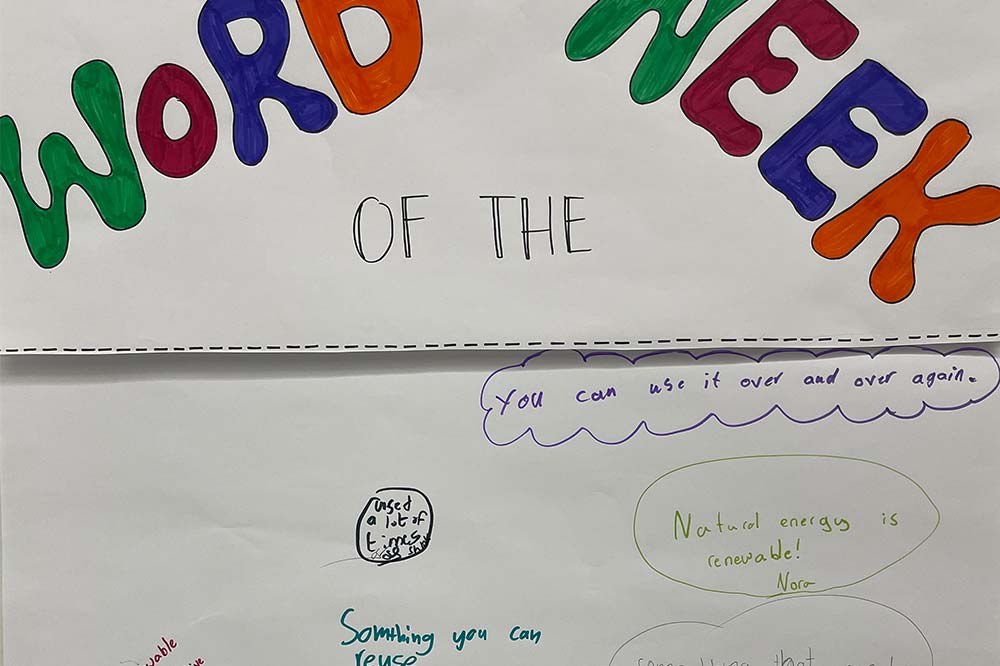
What emerged from this experiment was more than just a rearranged classroom. It was a sense of ownership and agency that permeated the air. Students weren't just participants; they were stakeholders in their educational ecosystem. The pride in their eyes as they surveyed the space and shared their justifications was impressive. The classroom was no longer the teacher's domain; it belonged to the students. As we have moved on from this unit of learning, the ownership and agency remains. Students now have more enthusiasm towards the opportunities to create passion projects in their own time and share these with their peers as well as collaborate on classroom displays to promote our joint space.
In conclusion, the journey of students actively participating in reshaping their learning space was a powerful testament to the importance of student agency. It's a concept that goes hand in hand with the IB learner profiles and approaches to learning, enriching the educational experience. Understanding the significance of this collaborative effort is key – it's not just about where they sit; it's about the mindset they develop, the skills they hone, and the ownership they take in their education. After all, fostering a sense of agency today cultivates the leaders and lifelong learners of tomorrow.
________________
Reference List
Dewey, J. (1938). Experience and Education. Kappa Delta Pi.
Freire, P. (1970). Pedagogy of the Oppressed. Continuum.
International Baccalaureate Organization. (2013). Approaches to Learning: A Competency-Based Guide. International Baccalaureate Organization.
International Baccalaureate Organization. (2013). Learner Profile. International Baccalaureate Organization.

